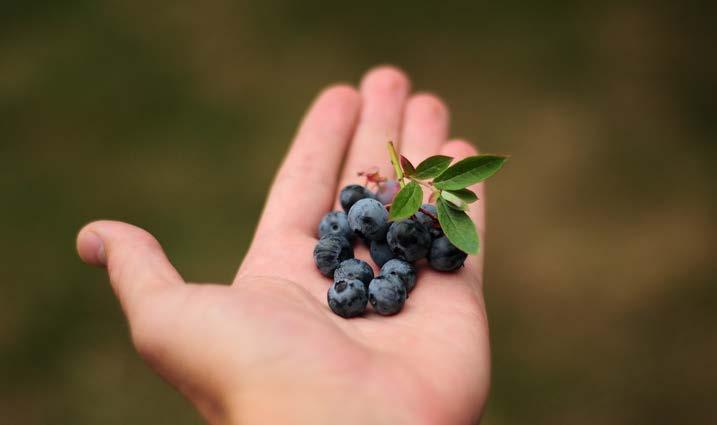
2 minute read
Fruit production part 6: Blueberries
from ProAgri BNZ 45
by ProAgri
Blueberries are a well-known fruit across the globe. The juicy, marblesized fruits are a culinary favourite, making its way into the muffins, pancakes, bread and breakfast bowls of consumers everywhere.
Although the market value of the humble blueberry has declined in recent years, farmers still invest in this crop as demand for the product rises. What, however, remains a challenge is the growing input costs that make the blueberry industry far less profitable than it used to be.
Advertisement
As a food source, blueberries are an excellent choice. They are chock full of iron, calcium, zinc, magnesium, and manganese as well as vitamins C, E and K. It is often processed into juice, flavourings, jams or puree. These berries easily freeze to keep for seasons when berries aren’t fruiting.
Throughout history it has even been used as a cough medicine and clothes dye.
Climatic and soil requirements
Some blueberry varieties fare better in some climates than others. This is due to the differences in humidity and cold temperatures. The plants are relatively hardy as they actually need intense cold in the winter to optimally go into rest as this results in better yields. In extremely hot areas, the plants might require a little more irrigation in the warmer months.
You will need to research what variety is best suited for your climate. Some varieties you can investigate include the O’Neal, Centurion, Sharp Blue, Brightwell, and Misty. It is best to plant more than one variety at a time. Some fruit earlier than others, so if you choose the right varieties, it is possible to have fruit six to eight months of the year.
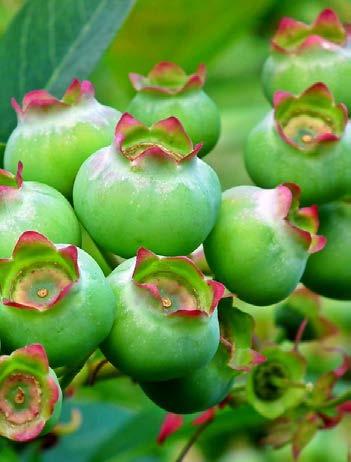
The plant prefers more acidic soils, 4 and 5,5 pH. The plants also need full sun, so be sure to not plant them in shady areas. They also require soil that drains well and is rich in organic material.
Planting
Plant blueberries either in early spring or autumn.
When planting your blueberry plantation, it is necessary to use young plants that are propagated through cuttings. You can acquire these young plants from a nursery.
by Maryna Steyn
Start by digging a large hole, approximately 50 cm wide and 50 cm deep. Prepare the soil you have removed by mixing in some compost to improve nutrients and drainage.
Ensure that you leave 1,5 m spacing between plants as they spread up to 1 m in diameter. Rows can be spaced 1,8 m apart.
A blueberry bush growns up to 1,5 m in height. Once plants are established, these perennials can provide the farmer with fruit for up to 20 years.
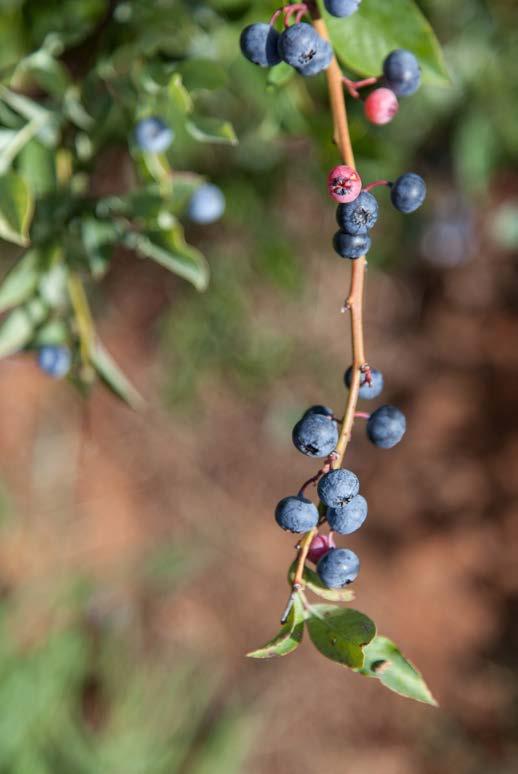
Fertilisation
Fertilise blueberry plants one month after planting.
A good water-soluble fertiliser that has nitrogen (65 g/kg) and higher levels of potassium (130 g/kg) can be used to fertigate every two weeks.
Be careful of nitrates as these can kill your berry bush.
Fertilise again after pruning.
Irrigation
Plants require regular irrigation, approximately 25 to 50 mm per week.
Harvesting
Blueberries flower in early spring whereafter fruits start to develop. Most commercial varieties are self-fertilising, so you should not have any difficulties when it comes to pollination.

The berries turn into a deep blue colour when they ripen throughout December and January. Berries that are ready to harvest are so ripe they basically fall into your hand.
Remember to prune the bushes after they stop bearing fruit. Only prune the weak stems that do not fruit, as well as those who will let in more light into the bush.
Pest and disease control
Blueberries are resistant to most pests and diseases, but if its environment isn’t taken care of, the plant can be susceptible to stress. Enough water, nutrition and suitable drainage will help avoid this.
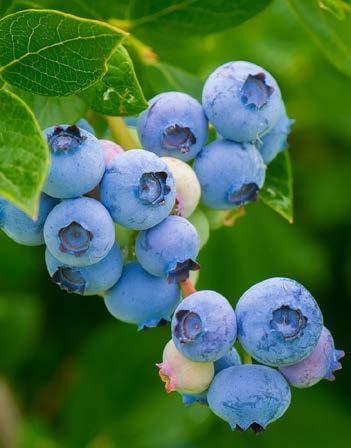
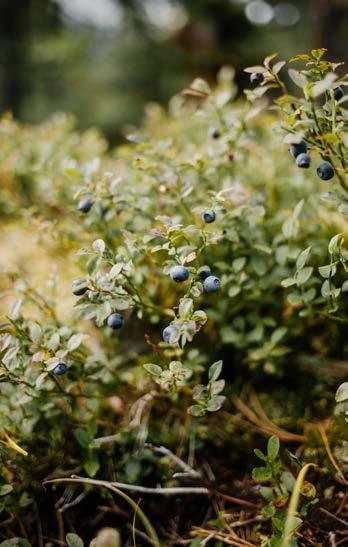
Punnets of delicious blueberries. (Source: Veeterzy on Pexels)
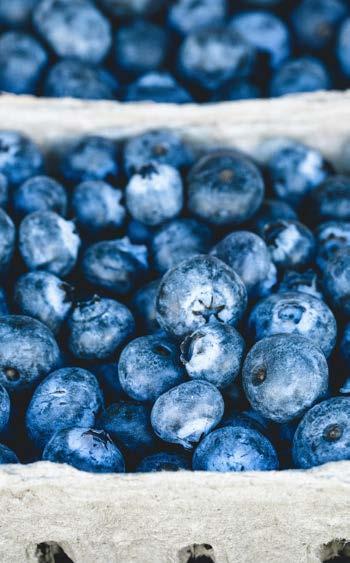

Sources:
Blueberry grow guide (no date) GrowVeg. Available at: https://www. growveg.co.za/plants/south-africa/ how-to-grow-blueberries.
Plant blueberries (no date) Gardening in South Africa. Available at: https:// www.gardeninginsouthafrica.co.za/ autumn-is-a-great-time-to-plantblueberries#:~:text=Blueberries%20 are%20sweet%2C%20highly%20 nutritious,pests%20and%20 diseases%2C%20and%20will.
Growing Blueberries Grow Guide (2019). Stark Ayers Garden Centre.










